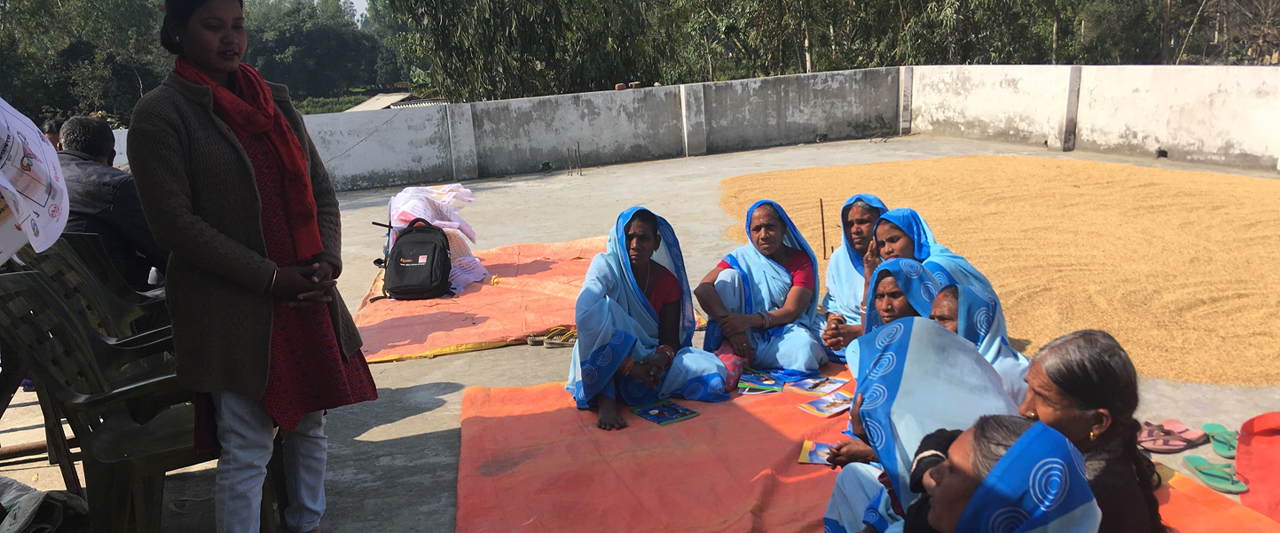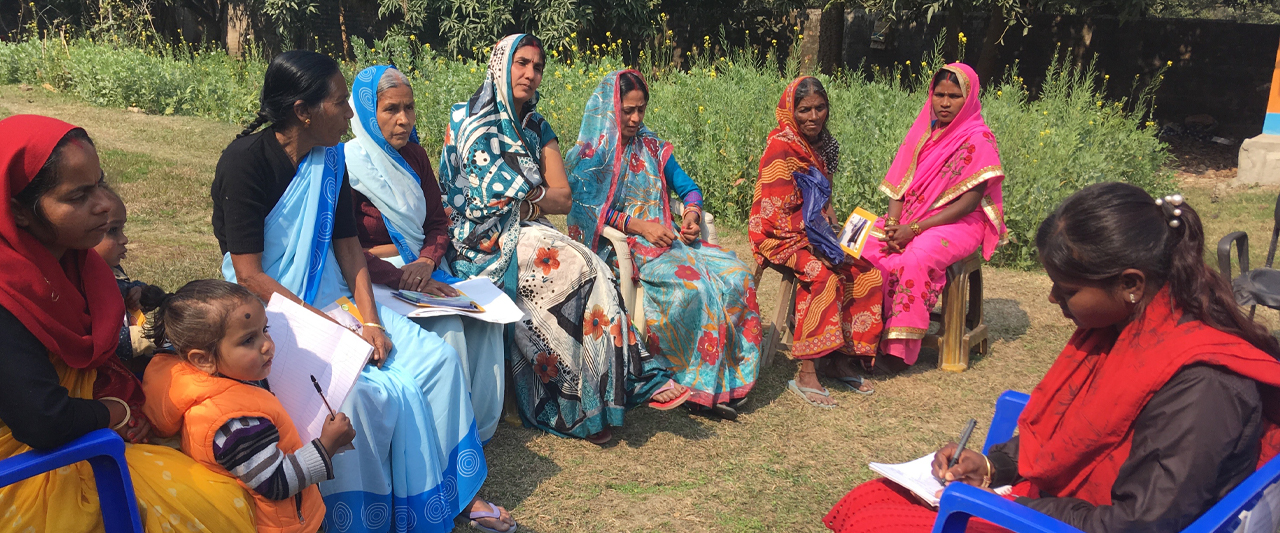In Nepal, it’s been illegal to discriminate based on caste since 1962. But a person’s caste still determines their quality of life—from if they have access to education and health care, to what kind of job they can get, to where they can travel. The Musahar community—part of Nepal’s lowest caste, the Sudra—are among the most disadvantaged and marginalized groups in Nepal, says Ipas Nepal Senior Advisor Dr. Lhamo Yangchen Sherpa. Musahar women, in particular, endure extreme forms of poverty, humiliation, and denial of social and economic rights and recognition as human beings. Sexual and gender-based violence is high for women in this community, and education access is extremely limited.
To better reach women in disadvantaged communities like the Musahars, Ipas Nepal sought people from marginalized groups to become sexual and reproductive health and rights trainers. Malati Sada, a Musahar woman, was selected, along with eight other people from different caste and ethnic groups. During her orientation in Kathmandu, she shared that health-care workers—like female community health volunteers (FCHVs) and service providers—don’t usually visit her community due to caste discrimination.

Malati Sada, a Musahar woman who received training from Ipas Nepal, speaks to women about sexual and reproductive health and rights in the Mahottari District.
To build her confidence, Ipas Nepal asked Sada to train groups of FCHVs and monitor their activities. So far, she has trained 45 people at five health facilities, and has emphasized the importance of providing care to all people—though she shares that it can be difficult to get people to change their behavior. None of the FCHVs she’s trained have been from the Musahar community, because part of the job of a FCHV is to visit people in their homes and share reproductive health information—and Musahar women aren’t allowed into others’ homes, temples, or even near the community water supply.
Musahar people also face housing discrimination. When Sada tried to rent a room to be closer to her job with Ipas, she was refused by four landlords once they discovered her caste. Her housing situation was unreliable until Sherpa alerted a state official to her situation and asked others in the area to help her find secure housing, which she eventually did.
“This is the kind of situation women like Malati still go through in 2020,” says Sherpa. “Ipas Nepal believes that by building the social capital of highly marginalized and disadvantaged women, we can normalize their engagement and meaningful participation in communities. Although people talk about not discriminating, most organizations haven’t taken special measures to bring marginalized women into the workforce. We want to set a positive example for the community.”
For more information, contact [email protected].


